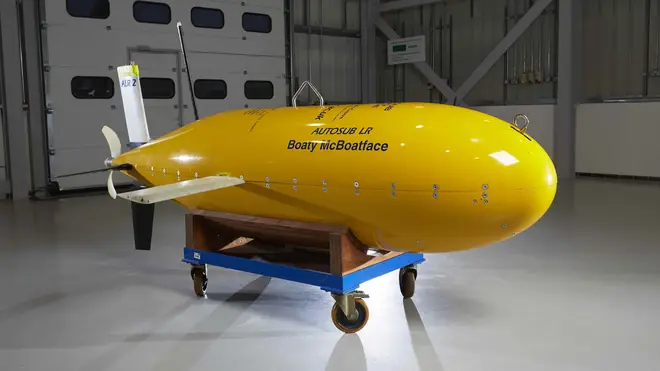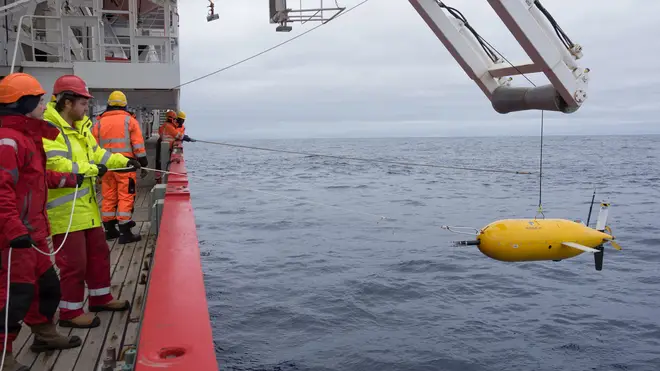
Iain Dale 7pm - 10pm
18 June 2019, 15:32

British research submarine Boaty McBoatface has made a "significant climate change discovery" on its first dive in the Antarctic.
Research teams who launched Boaty McBoatface's debut mission say they have made a "significant climate change discovery" that
Boaty, which carries the name that won a public poll, took measurements at depths of 4,000 meters along a route of 180 kilometres.
But data collected by Boaty and analysed by the British Antarctic Survey, revealed a mechanism that enables the winds to increase turbulence deep in the ocean, mixing warm water from the mid-depths with deeper colder water.
It is the warmer water on the seabed that scientists say is a "significant contributor" to rising sea levels.

The team of researchers from the University of Southampton and British Antarctic Survey, along with National Oceanography Centre engineers launched the autosub in April 2017, which saw the yellow submarine under water for nearly 30 hours.
The autosub travelled at depths of up to 4,000 meters across 180 kilometres through mountainous underwater valleys measuring the temperature, saltiness and turbulence of the water.
Professor Alberto Naveira Garabato from the University of Southampton said the study was an "important step" in understanding how climate change will impact future sea level rise.
He said: "Our study is an important step in understanding how the climate change happening in the remote and inhospitable Antarctic waters will impact the warming of the oceans as a whole and future sea level rise."